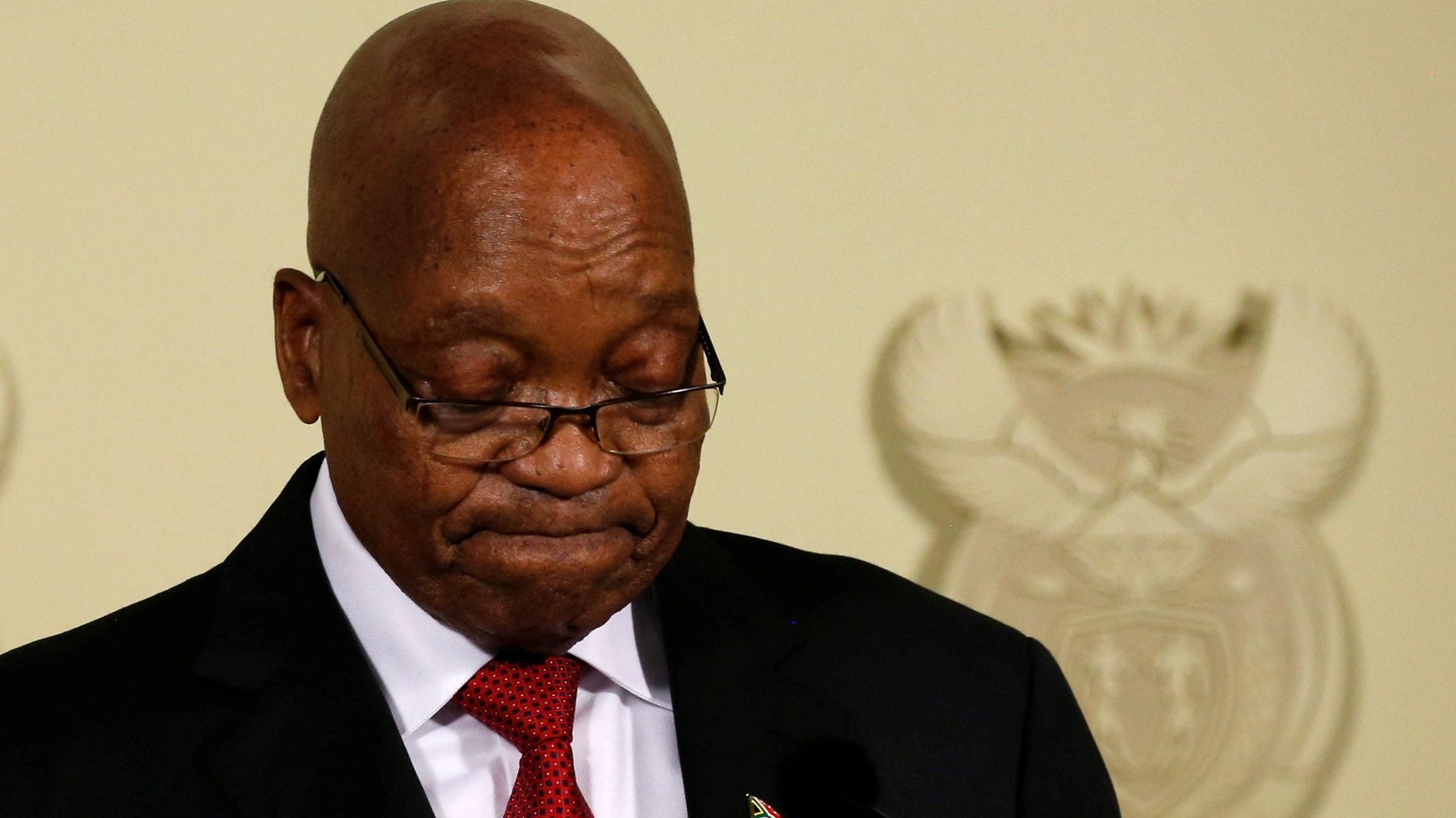Jacob Zuma has finally resigned as president of South Africa
President Jacob Zuma has resigned.


President Jacob Zuma has resigned.
After more than ten days of uncertainty in South Africa, Zuma took to an official podium in the capital Pretoria and in a televised address late on Wednesday night (Feb. 14) local night, he told the nation he was finally stepping down after being pushed out by his own party.
“I have therefore come to the decision to resign as president of the public with immediate effect,” he said at the end of a 30-minute speech. “Even though I disagree with my organization, I have always been a disciplined member of the African National Congress.”
Yet, throughout the last few days, even during the course of his farewell speech, it seemed that Zuma was trying to hold on for a little longer. The bulk of his speech was taken up by reminding South Africans of the constitution as the paramount law-above party politics. This was slightly ironic for a president who was found in breach of the constitution by South Africa’s constitutional court, but Zuma’s presidency has not been without irony.
The last few hours of his presidency were typical of Zuma’s rule. Hours before, he appeared in a live television interview with the South African Broadcasting Corporation, he told the country that he was the “victim” in this process that the ANC had dubbed his “transition.” Up until the bitter end, Zuma contended that he did nothing wrong, actually looking befuddled about why his party had decided to recall him in the first place.
“No one has been able to provide what is it that I have done,” Zuma said in that surprise sit-down interview. “I found it very, in a sense, unfair to me that this issue must be raised all the time.” Just moments before, ANC parliamentarians had concluded their own press conference where they issued him with a deadline: resign before the end of Feb. 14 or face an embarrassing vote of no-confidence in parliament, even if it meant siding with the opposition.
That his resignation is with immediate effect shows that in the end Zuma bowed to his party. He had apparently been trying to negotiate for three more months in office, but as pressure mounted and his friends were arrested, he was forced to cave. His resignation ends days of uncertainty and speculation, months of ignoring protests and calls for him to step down and years that saw South Africa flounder under misdirection.
The current president of the ANC, Cyril Ramaphosa, will now be sworn in as president of South Africa. Depending on the availability of the chief justice, the trade unionist turned billionaire businessman will be president as early as Thursday (Feb. 15). Ramaphosa was elected to the top spot of the ANC last December and has since then embarked on a soft campaign to position himself as the man who will rid South Africa of corruption and steer the country in the right direction.